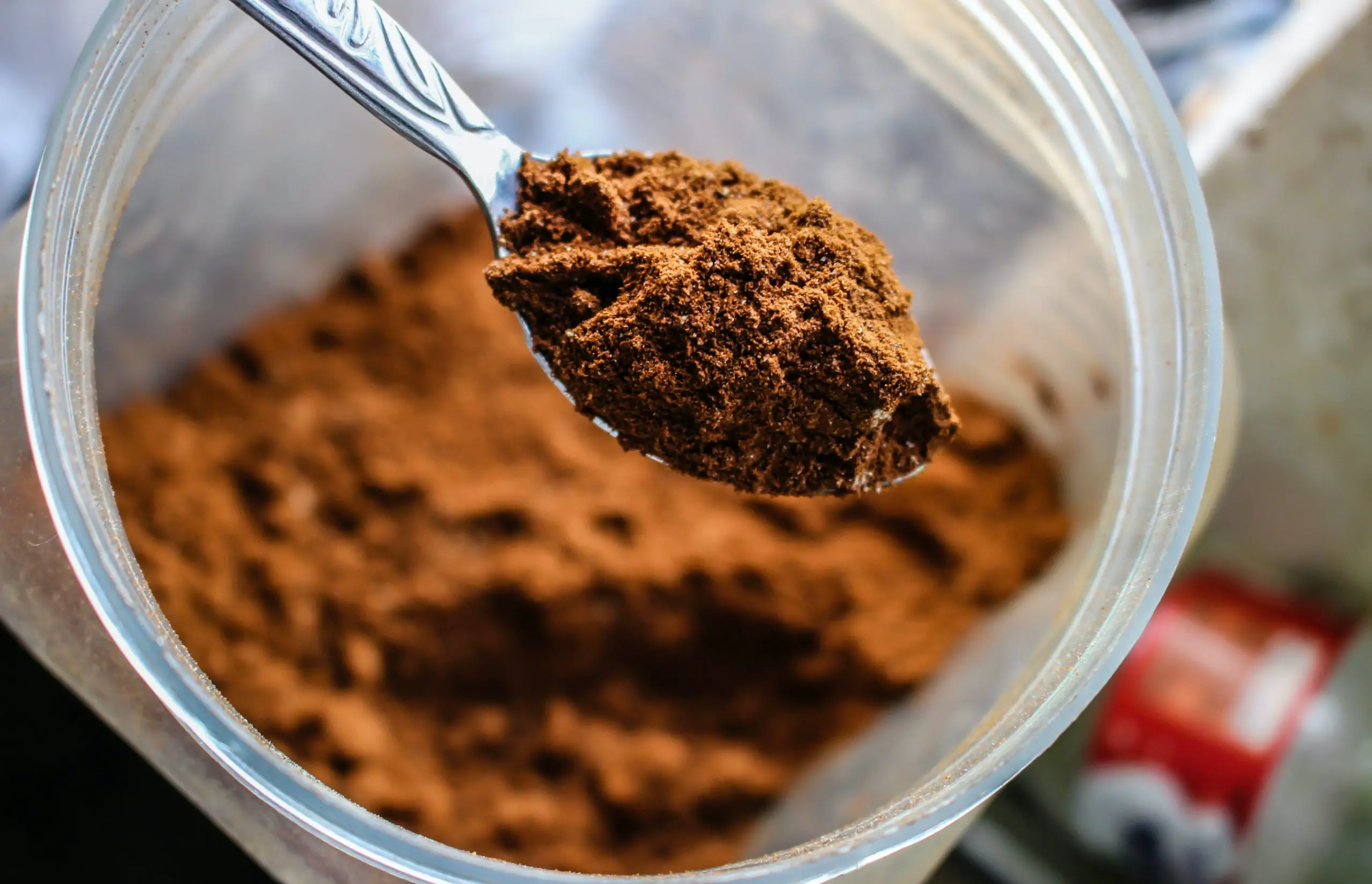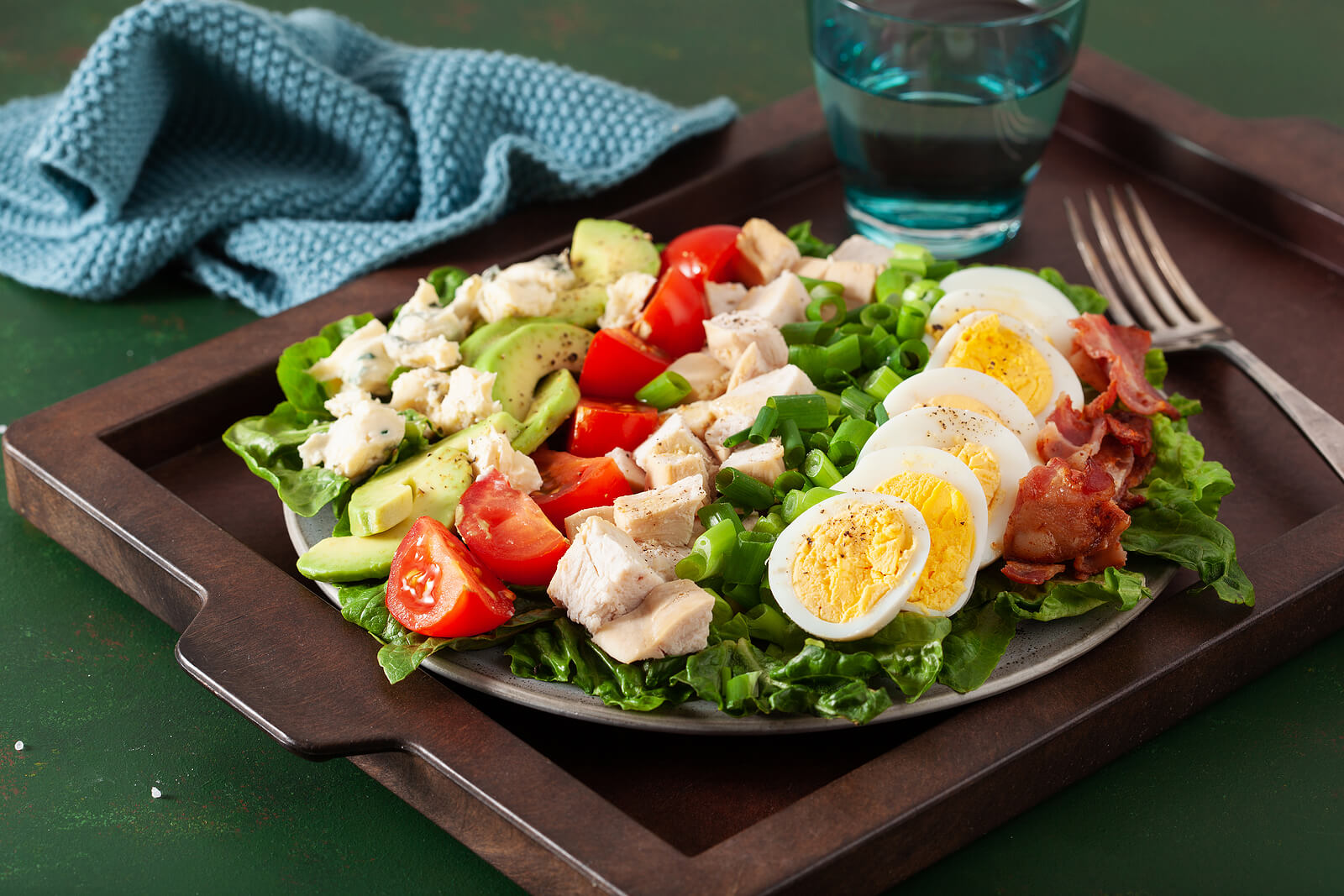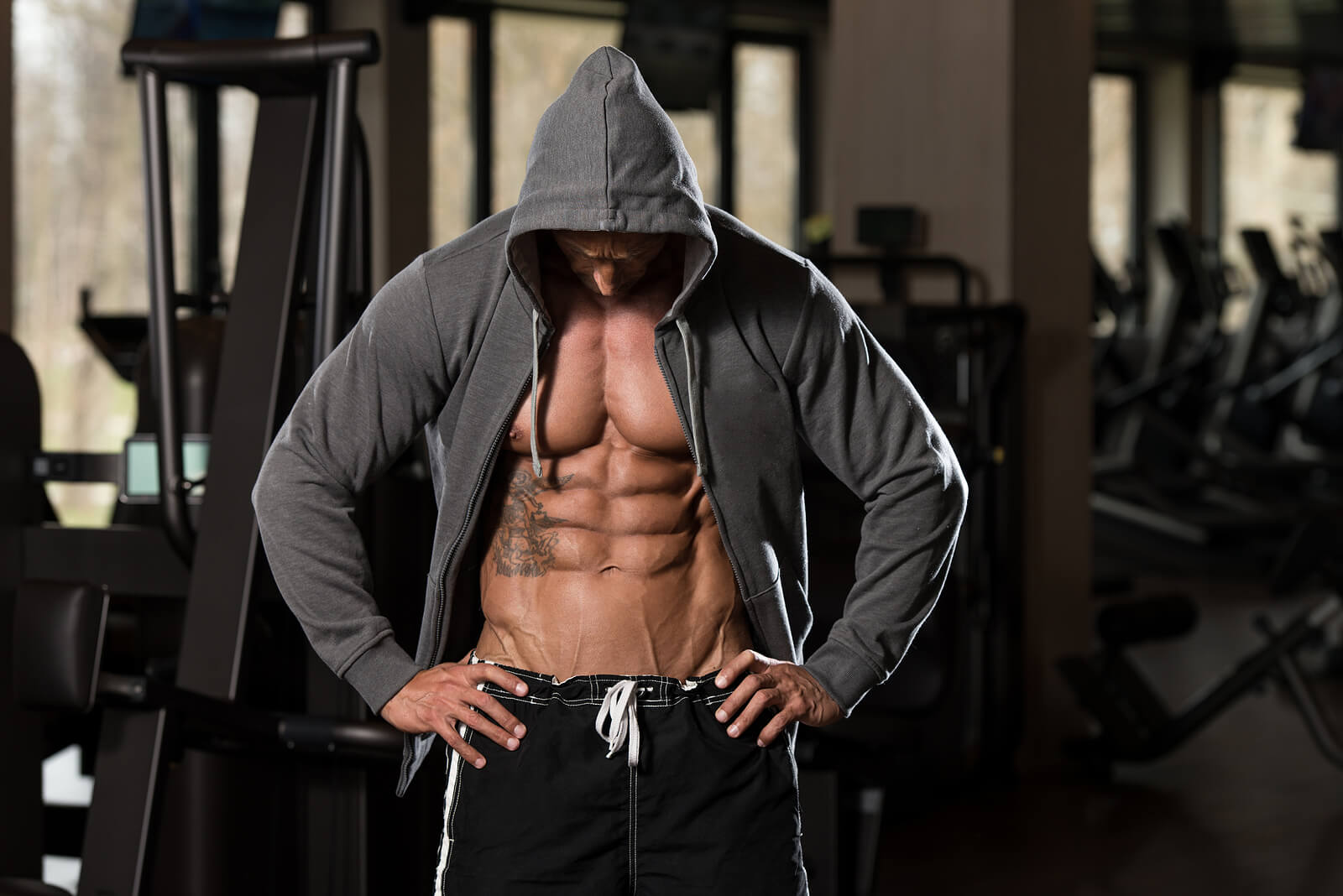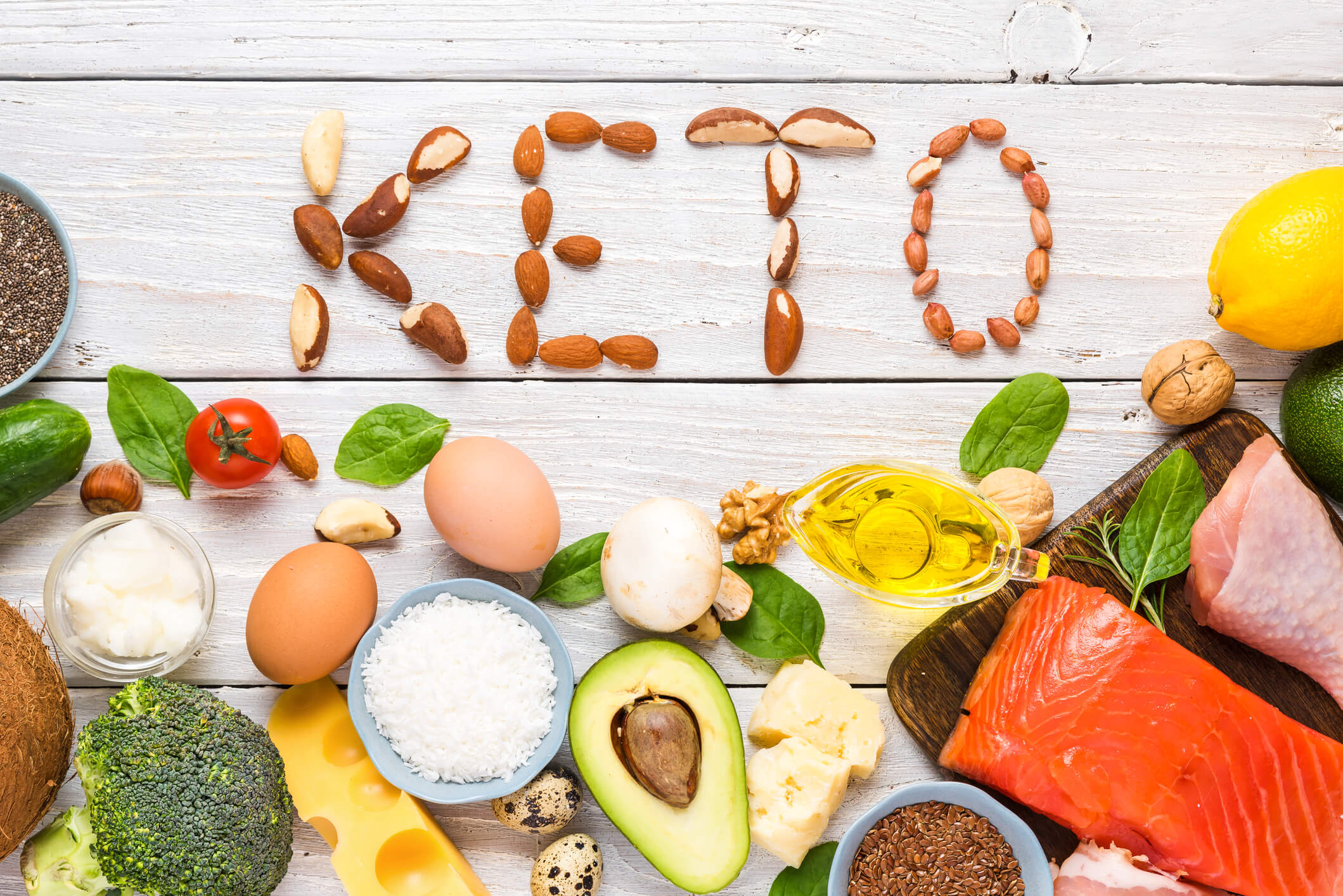If you’re looking to get six-pack abs, you might be wondering if protein powder can help you achieve your goal. Protein is an essential nutrient that is needed for muscle growth and repair. It’s no secret that consuming enough protein is important for building muscle mass, but can protein powder specifically help you get six-pack abs?
Protein powder is a popular supplement among fitness enthusiasts, bodybuilders, and athletes. It’s a convenient way to increase your protein intake, especially if you have a busy lifestyle. While protein powder can help you reach your daily protein goals, it’s important to note that it’s not a magic solution for getting six-pack abs. Achieving a six-pack requires a combination of a healthy diet, regular exercise, and dedication.
Understanding the Role of Protein
If you are looking to get six-pack abs, then protein is an essential nutrient that you need to understand. Protein is an essential macronutrient for building and repairing muscle tissue. When you exercise, you create tiny tears in your muscle fibers, and protein is needed to repair and rebuild those fibers.
Protein is made up of amino acids, which are the building blocks of muscle tissue. There are 20 amino acids, and nine of them are considered essential because your body cannot produce them on its own. You need to get these essential amino acids from your diet.
Protein intake is crucial for muscle growth and increasing muscle mass. If you are not consuming enough protein, your body will not have the necessary building blocks to build new muscle tissue. The amount of protein you need depends on your body weight, activity level, and fitness goals.
While it is possible to get all the protein you need from whole foods, many people find it challenging to consume enough protein through their diet alone. This is where protein supplements come in. Protein supplements are an easy and convenient way to increase your protein intake and support muscle growth.
When it comes to getting six-pack abs, protein powder can be a helpful tool, but it is not a magic solution. Protein powder can help you reach your daily protein intake goals, which is essential for building muscle. However, it is important to remember that you also need to engage in regular exercise and follow a healthy diet to see results.
In summary, protein plays a vital role in building and repairing muscle tissue, and it is essential for increasing muscle mass. While protein supplements can be a helpful tool, they should not be relied upon as the sole source of protein in your diet. Make sure to consume a variety of protein sources, including whole foods, to support your fitness goals.
The Connection between Protein Powder and Six-Pack Abs
If you’re looking to get six-pack abs, you’ve probably heard that protein powder can help. But is there really a connection between protein powder and six-pack abs? The answer is yes, but it’s not as simple as just drinking a protein shake.
First, let’s talk about what protein powder actually does. Protein is essential for building muscle, and protein powder is a convenient way to get more of it into your diet. When you do resistance training exercises like weightlifting, your muscles experience small tears that need to be repaired. Protein helps to repair those tears and build new muscle tissue, which can lead to increased strength and muscle definition.
But can protein powder specifically help you get six-pack abs? The short answer is that it can help, but it’s not a magic solution. To get six-pack abs, you need to have a low body fat percentage, which means you need to be in a calorie deficit. This is where protein powder can come in handy.
One of the benefits of protein powder is that it can help you feel full and satisfied, which can make it easier to stick to a calorie-controlled diet. Additionally, protein powder can help to preserve muscle mass while you’re in a calorie deficit, which can help to prevent your metabolism from slowing down too much.
However, it’s important to remember that protein powder is just one piece of the puzzle. To get six-pack abs, you also need to do regular strength training exercises that target your abs, as well as other compound exercises that work your whole body. Resistance training is important for building muscle and increasing your metabolism, which can help you burn more calories throughout the day.
In addition to strength training, it’s also important to focus on muscle recovery. When you do resistance training exercises, your muscles need time to recover and repair. Getting enough rest and eating a balanced diet that includes plenty of protein can help to speed up the recovery process and prevent injury.
In conclusion, protein powder can be a useful tool for building muscle and getting six-pack abs, but it’s not a magic solution. To see results, you need to combine protein powder with regular strength training exercises, a calorie-controlled diet, and adequate rest and recovery.
Types of Protein Powders
If you’re looking to get six-pack abs, protein powder can be a helpful addition to your diet. There are several types of protein powders on the market, each with its own unique benefits. Here are some of the most popular types of protein powders:
Whey Protein
Whey protein is one of the most popular types of protein powders and is derived from milk. It is a complete protein, meaning it contains all nine essential amino acids that your body needs. Whey protein is also high in leucine, an amino acid that plays a key role in muscle protein synthesis. It is quickly absorbed by the body, making it an ideal choice for post-workout recovery.
Casein Protein
Casein protein is also derived from milk and is a slow-digesting protein. It provides a steady supply of amino acids to the body over a longer period of time, making it a good choice for a bedtime snack or a meal replacement. Casein protein is also high in calcium, which is important for bone health.
Soy Protein
Soy protein is a plant-based protein that is derived from soybeans. It is a complete protein and is high in antioxidants and phytoestrogens, which can have health benefits for women. Soy protein is also low in fat and cholesterol, making it a good choice for those looking to lose weight.
Pea Protein
Pea protein is a plant-based protein that is derived from yellow peas. It is a good source of protein for vegetarians and vegans and is also hypoallergenic, making it a good choice for those with food allergies. Pea protein is also high in branched-chain amino acids (BCAAs), which can help with muscle recovery and growth.
Rice Protein
Rice protein is a plant-based protein that is derived from brown rice. It is a good source of protein for vegetarians and vegans and is also gluten-free, making it a good choice for those with celiac disease or gluten sensitivity. Rice protein is also high in cysteine, an amino acid that is important for immune function.
Hemp Protein
Hemp protein is a plant-based protein that is derived from hemp seeds. It is a good source of protein for vegetarians and vegans and is also high in fiber, which can help with digestion and satiety. Hemp protein is also high in omega-3 fatty acids, which can have health benefits for the heart and brain.
Plant-Based Protein Powder
Plant-based protein powders are a good choice for those who are looking for a protein powder that is free from animal products. They are typically made from a blend of plant-based proteins, such as pea, rice, and hemp. Plant-based protein powders are also typically low in fat and cholesterol and are a good source of fiber.
Whey Protein Powder
Whey protein powder is a good choice for those who are looking for a protein powder that is derived from milk. It is a complete protein and is quickly absorbed by the body, making it an ideal choice for post-workout recovery.
Casein Protein Powder
Casein protein powder is a good choice for those who are looking for a slow-digesting protein. It provides a steady supply of amino acids to the body over a longer period of time, making it a good choice for a bedtime snack or a meal replacement.
Benefits of Protein Powder
Protein powder is a popular supplement among fitness enthusiasts. It is an excellent source of protein, which is essential for building and repairing muscles. Here are some of the benefits of protein powder:
- Muscle Growth: Protein powder is a great way to increase your protein intake, which is essential for muscle growth. When you work out, your muscles break down, and protein helps repair and rebuild them. Consuming protein powder after a workout can help provide your muscles with the necessary nutrients to grow and recover.
- Weight Loss: Protein powder can help you lose weight by keeping you full and reducing your appetite. Protein takes longer to digest than carbohydrates, which means it can keep you feeling full for longer periods. This can help you consume fewer calories throughout the day, leading to weight loss.
- Recovery: Protein powder can also help speed up recovery after a workout. Consuming protein after a workout can help reduce muscle soreness and improve muscle function.
- Metabolism: Protein powder can help boost your metabolism, which can aid in weight loss. Protein requires more energy to digest than carbohydrates or fats, which means your body burns more calories digesting protein.
- Heart Health: Protein powder can also help improve heart health. Studies have shown that consuming protein can help lower blood pressure and reduce the risk of heart disease.
- Immune System: Protein powder can also help boost your immune system. Protein is essential for the production of antibodies, which are necessary for fighting off infections and diseases.
- Efficacy: Protein powder is an effective and convenient way to increase your protein intake. It is easy to consume and can be added to a variety of foods and drinks.
Overall, protein powder is an excellent supplement for anyone looking to build muscle, lose weight, or improve their overall health. However, it is important to remember that protein powder should not be used as a substitute for a healthy and balanced diet.
Potential Risks and Side Effects
While protein powders are generally considered safe and effective for muscle building, there are some potential risks and side effects to be aware of.
Heavy Metals and Other Contaminants
One of the main concerns with protein powder is the presence of heavy metals and other contaminants. Some studies have found that certain brands of protein powder contain high levels of lead, arsenic, cadmium, and mercury, which can be harmful to your health if consumed in large amounts over time.
To minimize your risk of exposure to these contaminants, it is important to choose a protein powder that is regulated by the FDA and has been tested for safety. Look for products that have been certified by third-party organizations like NSF International or Informed Choice, which test for heavy metals and other contaminants.
Digestive Issues
Another potential side effect of protein powder is digestive issues, such as bloating, gas, and diarrhea. This is more likely to occur if you consume large amounts of protein powder or if you have a sensitivity or allergy to dairy or soy, which are common ingredients in many protein powders.
To minimize your risk of digestive issues, start with a small serving size of protein powder and gradually increase it over time. You may also want to try different types of protein powder, such as whey, casein, or plant-based options, to see which one works best for you.
Blood Pressure and Kidney Function
There is some concern that consuming high amounts of protein, including protein powder, may increase your risk of high blood pressure and kidney damage over time. However, more research is needed to fully understand the long-term effects of high protein intake on these health outcomes.
To minimize your risk, it is important to consume protein powder in moderation and to make sure you are getting enough water and other fluids to help flush out your kidneys. If you have a history of high blood pressure or kidney problems, you may want to talk to your doctor before using protein powder.
Overall, protein powder can be a safe and effective way to support muscle building and weight loss goals. However, it is important to be aware of the potential risks and side effects and to choose a high-quality product that has been tested for safety.
How to Choose the Right Protein Powder
When it comes to getting a six-pack, protein powders can be a helpful addition to your diet. However, choosing the right protein powder can be overwhelming, with so many options available. Here are some tips to help you choose the right protein powder for your needs:
Consider Your Goals
First, consider your fitness goals. If you’re looking to build muscle mass, a protein powder with a higher concentration of protein per serving may be best. If you’re looking to lose weight and tone your muscles, a protein powder with added CLA or seeds may be a better option.
Check the Ingredients
Always check the ingredients list before purchasing a protein powder. Look for powders with a high concentration of protein and low amounts of added sugars and carbs. Pea protein is a good option for those who are lactose intolerant or prefer plant-based proteins.
Look for Quality
Make sure to purchase protein powders from reputable manufacturers who follow good manufacturing practices. Look for products that have been certified by organizations like NSF or USP for purity and quality.
Consider Price
Protein powders can vary in price, so consider your budget before making a purchase. Keep in mind that higher-priced powders may not necessarily be of higher quality.
Read Reviews
Lastly, read reviews from other customers to see how the protein powder has worked for them. This can give you a better idea of the taste, texture, and effectiveness of the product.
By following these tips, you can choose the right protein powder to help you achieve your six-pack goals.
Incorporating Protein Powder into a Balanced Diet
If you are looking to get a six-pack, incorporating protein powder into your balanced diet can be a helpful addition. Protein powders are a convenient and easy way to increase your protein intake, which is essential for building and maintaining muscle mass. However, it is important to remember that protein powder alone will not give you a six-pack. A balanced diet and regular exercise are also necessary.
When incorporating protein powder into your diet, it is important to choose a high-quality protein powder that is low in sugar and additives. Some good sources of protein powder include whey, casein, soy, and pea protein. You can also find plant-based protein powders that are made from a combination of sources like rice, hemp, and pea protein.
In addition to protein powder, you should also focus on incorporating other nutrient-dense foods into your diet. Fruits, vegetables, whole grains, nuts, seeds, legumes, and beans are all excellent sources of vitamins, minerals, and fiber that will help support your overall health and fitness goals.
Iron is another important nutrient to consider when incorporating protein powder into your diet. Iron is essential for the production of red blood cells, which carry oxygen throughout your body. Good sources of iron include spinach, lentils, tofu, and fortified cereals.
When it comes to incorporating protein powder into your diet, there are many ways to do so. You can mix it into smoothies, oatmeal, or yogurt, or use it to make protein bars or baked goods. Just be sure to follow the recommended serving size and consult with a healthcare professional if you have any concerns or questions about your diet.
Overall, incorporating protein powder into a balanced diet can be a helpful tool for building and maintaining muscle mass, but it is important to remember that it is just one piece of the puzzle. A healthy diet and regular exercise are key components of achieving a six-pack.
Special Considerations for Different Populations
When it comes to getting a six-pack, different populations may have different considerations and requirements. Here are some special considerations for various populations:
Age
As you age, your metabolism slows down, and your body tends to lose muscle mass. Therefore, it may be more challenging to get a six-pack as you get older. However, regular exercise and a healthy diet can help you maintain muscle mass and reduce body fat. Incorporating protein powder into your diet can also help you maintain muscle mass and support muscle recovery after exercise.
Older Adults
Older adults may have different nutritional requirements than younger individuals. For example, older adults may require more protein to maintain muscle mass and prevent age-related muscle loss. Therefore, protein powder may be a useful supplement for older adults who are looking to get a six-pack. However, it is essential to consult with a healthcare professional before taking any supplements.
Athletes
Athletes may have higher protein requirements than the general population due to the increased demands of exercise. Therefore, protein powder may be a useful supplement for athletes who are looking to get a six-pack. However, it is essential to choose a protein powder that is appropriate for your sport and training goals.
Pregnant Women
Pregnant women have increased protein requirements to support fetal growth and development. Therefore, protein powder may be a useful supplement for pregnant women who are looking to get a six-pack. However, it is essential to consult with a healthcare professional before taking any supplements during pregnancy.
Vegans
Vegans may have difficulty getting enough protein from their diet alone, as many protein sources are animal-based. Therefore, protein powder may be a useful supplement for vegans who are looking to get a six-pack. However, it is essential to choose a vegan-friendly protein powder that is appropriate for your dietary needs.
Conclusion
In conclusion, protein powder can be a useful tool to help you achieve your desired six-pack. However, it is important to remember that protein powder alone will not magically give you a six-pack, and it must be combined with a proper diet and exercise routine.
Protein powder can help you increase your protein intake, which is essential for building and maintaining muscle mass. Additionally, protein powder is a convenient and easy way to consume protein, especially for those who are always on the go.
When choosing a protein powder, it is important to select a high-quality product that is free from harmful additives and fillers. Look for a protein powder that is low in sugar and carbohydrates and high in protein.
Remember, protein powder is not a substitute for whole foods. It should be used as a supplement to your diet, not a replacement. Make sure to include a variety of whole foods in your diet to ensure that you are getting all the necessary nutrients.
In summary, protein powder can be a valuable addition to your diet and exercise routine when used correctly. It can help you reach your fitness goals by providing your body with the necessary nutrients to build and maintain muscle mass.






Leave a Reply